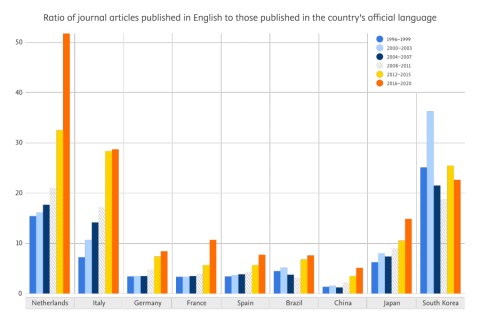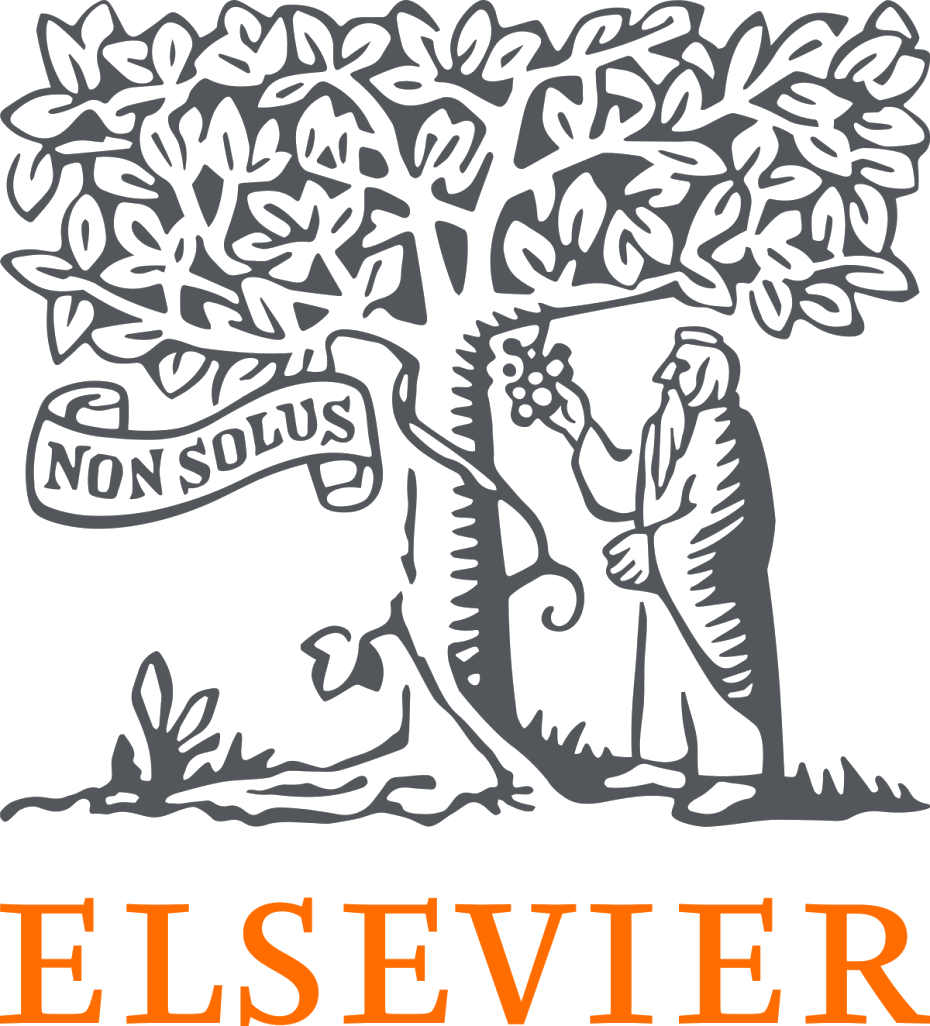
Ten tips to succeed in publishing in English as a second language
English is now selected five times as often as the authors’ national language for journal article publication. Christopher Tancock explains how you can get published even if English is not your first language

The importance of English
A solid command of English is vitally important if you are pursuing publication in most academic journals. Indeed, English, rather than the official language of the author’s home country, is increasingly chosen as the language of publication, according to new research.
After earlier investigations into the topic, the International Center for the Study of Research examined journal articles indexed in Scopus between 1996 and 2020. As Figure 1 below shows, the ratio of the number of journal articles published by researchers in English versus those published in the official language of their country has increased with time in most cases.

English has become increasingly popular in academic publishing since the Second World War, when it was already globally widespread as a remnant of colonialism. The status of English in academia is helped by the fact that it is the world’s most studied language, the first language of around 400 million people and the second language of up to 1.4 billion more.
English as a second language
The pre-eminence of English is all well and good for its many native writers, but that doesn’t make the already challenging task of writing up and submitting research any easier for those for whom English is a second (or third) language. Indeed, this state of affairs can be a real headache. In this author’s experience, perhaps a third of all manuscript rejections are due to language issues. Making sure you submit in clear, comprehensible English will give you best chance of a positive outcome as far as linguistic criteria go. Even if you’re working in a field where the quality of prose is less important, it’s still a good idea to write engagingly and accessibly – after all, if your work can be widely read and understood, its impact is likely to be greater. How can you cope, then, in a system where you frequently have to switch to English to get published?
- Resource collection: Tips for success in academic publishing
- Making the abstract concrete
- How to pitch a book to an academic publisher
Top tips for success in English
Thankfully, despite the disadvantage of not having English as a mother tongue, it is perfectly possible to get published. For those of you who need a helping hand, here are our top recommendations for perfecting your English and seeing your work in print.
1. Study. Take advantage of any classes or other support offered by your institution or made available in your local community or interest groups. Alternatively, make use of the many English-language learning resources online, for example on YouTube and elsewhere.
2. Read. Read regularly from the journals in which you hope to be published – doing so will help you adjust to the style and language expected of your article.
3. Practise. Watch TV, listen to podcasts, read the news, listen to the radio and seek opportunities to use your English at every opportunity.
4. Learn. Learn from your mistakes. If an editor, reviewer or colleague points out a linguistic error in your work, make a note of it and avoid repetition in the future.
5. Brush up. If you struggle with English grammar, consider the use of tools such as Grammarly (or simply buy a good grammar guide and practise).
6. Befriend. Find a friend, colleague or mentor who’s either a native speaker of English or someone with excellent English language skills and ask them to read your work before submission.
7. Travel. Seize the opportunity to travel to conferences and make sure to both consume and produce – listen to presentations (in English) but deliver your own, too, and solicit feedback. Be equally alert to webinars and online workshops and courses (for example, from Researcher Academy, British Council courses and Cambridge University English learning resources), especially if the content speaks to language or manuscript improvement.
8. Review. A great way to both expand your own subject knowledge, exercise your English and participate more fully in the academic publishing operation is to act as a referee. It also, of course, gives you the opportunity to see the process from an entirely different angle.
9. Dig deep. Go the extra mile. To boost your chances of success and to produce work that is maximally accessible, spend the time necessary to write in clear, compelling and engaging English.
10. Pay. If all else fails, consider paying to have your paper professionally translated or corrected. There are many solutions available from publishing houses and online. But do check that you are using a reliable, quality service certified by an official body such as the UK’s Institute of Translation and Interpreting. It is still worth asking a native English-speaking friend or colleague to take a look.
Like it or not – and despite laudable attempts to promote more local-language outputs – writing in English is largely unavoidable when seeking an academic publication in most journals. Publication success can be yours, however – follow the tips above and you’ll soon be seeing your name in print. Good luck!
Christopher Tancock is editor-in-chief of Elsevier’s Editors’, Authors’ and Reviewers’ Updates and works on related communications projects.
If you would like advice and insight from academics and university staff delivered direct to your inbox each week, sign up for the Campus newsletter.



